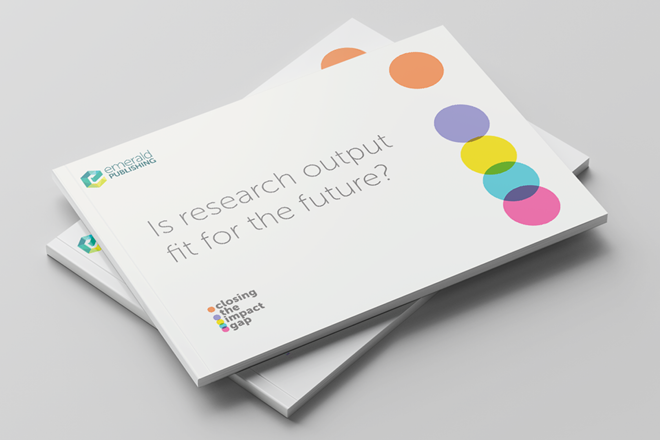Debbie Haski-Leventhal is a Professor of Management at the Macquarie Business School. She is a TED speaker and the author of Strategic Corporate Social Responsibility: Tools and Theories for Responsible Management and The Purpose Driven University.
Should universities focus their resources, knowledge and people for world good? Author of The Purpose Driven University, Professor Debbie Haski-Leventhal argues why now is the ideal time for higher education institutions to intentionally create a positive impact in the world.
Stanford University is renowned for the quality of its education and research, from experiential learning to working with industry. However, in the last 20 years, it became a force to be reckoned with, as a university that aims to contribute to the world. From The Alternative Breaks @ Stanford Program, which enables students to work closely with the community, to its research centres on poverty and social innovation, Stanford is at the front of an emerging movement towards purpose and impact.
During COVID-19, Stanford University used the power of its students and staff to help others, such as through the development of medical equipment, related research, and creating an app for first responders. Stanford established the COVID-19 Clinical Care and Research to work with the wider community and offer help for those who need it.
As I have captured in my book, The Purpose Driven University, this is all part of a fast-emerging movement. An increasing number of universities are no longer satisfied with providing degrees to students and scientific research. Such universities are aiming to utilise their power, knowledge, people, amazing intellect, and even their campuses to create a positive impact in the world.
A purpose-driven university utilises all its resources to continuously and intentionally contribute to the communities and the environment in which it operates: through research, education, programmes, and service.
When universities become purpose-driven organisations, focusing on social innovation and impact, they create a unique social value proposition and engage people around a shared narrative of impact. Not only do they benefit society, but in doing so they also engage students and staff, improve their reputation and (impact) ranking and become the destination of choice for purpose-driven people.
Opportunities presented by COVID-19
COVID-19 is a major disruptor for higher education. In many universities, reoccurring lockdowns, illness, and the loss of international students were catastrophic. Many universities had to generate innovative solutions, from shifting rapidly to online teaching to unusual graduation ceremonies. However, the coronavirus also presents universities with an immense opportunity to evolve and become more purpose-driven institutions, as was seen with the opening example of Stanford University.
While the upheaval caused a certain amount of dislocation on campuses, resilient universities perceived it as an opportunity. According to University World News, there is now an excellent opportunity to develop new forms of personalised education and to utilise innovative and ground-breaking solutions, from remote learning to AI marking and blockchain for delivering student results. Innovation is oftentimes the result of a global crisis.
Indeed, some universities do not just teach innovation; they practice it. One example comes from Japan where Business Breakthrough University in Tokyo strived to still provide the rite of passage for its graduates amid a national lockdown. The result was a graduation ceremony with avatar robots remotely controlled by the students from their homes. The avatar robots were dressed in graduation caps and gowns for the ceremony, complete with tablets projecting the graduate’s face.
However, innovation and advanced higher education do not need to stop at remote learning and avatar robots. This crisis can lead to an existential quest for higher education, in which universities do not only change what they do and how they do it but instead, dig more deeply into why they do what they do.
When I wrote my book and delivered my TED talk on this topic in 2019, no one had heard of COVID-19. Since then, I have been observing universities rising to the occasion and utilising all their power and resources to help the world.
For example, The University of Pennsylvania (Penn), is one of the most purpose-driven universities in the world. In the days before COVID-19, this university addressed poverty and engaged with the community. Penn presented the ‘Collective Climb’ project to combat poverty; with the President’s Engagement Prize, recipients work to combat poverty in West Philadelphia through education, shared resources, and community collaboration. In the face of the pandemic, Penn utilised its School of Medicine to help find a vaccine and presented the innovative Penn COVID-19 Community Archiving Project to help future generations understand and learn how the community supported the world during these difficult times.
My university, Macquarie University, also understands how stressful this period can be for Year 12 students. To address this, Macquarie University has announced that it is extending its existing early entry schemes to ensure all eligible Year 12 students can secure an offer to study at Macquarie University. In 2021 it has also committed to using its North Sydney campus as a vaccination hub.
All over the world, universities are being affected by COVID-19. The ones who can find their purpose and share a compelling story of impact with the world are the ones who will come out stronger from this. COVID-19 disrupted higher education this year, and perhaps for many years to come, but it does not have to be all negative.

Closing the impact gap
Discover the views of 1,500 academics on the future of research outputs in our global report. We look at how research outputs might develop in the future to advance accessibility, learning and real-world impact.

Quality education for all
This blog is aligned with our 'Quality education for all' goal, which is part of our commitment to the SDG Publishers Compact. You can read more – and find related calls for papers, free articles and book chapters, and links to our missions – on the goal page.
